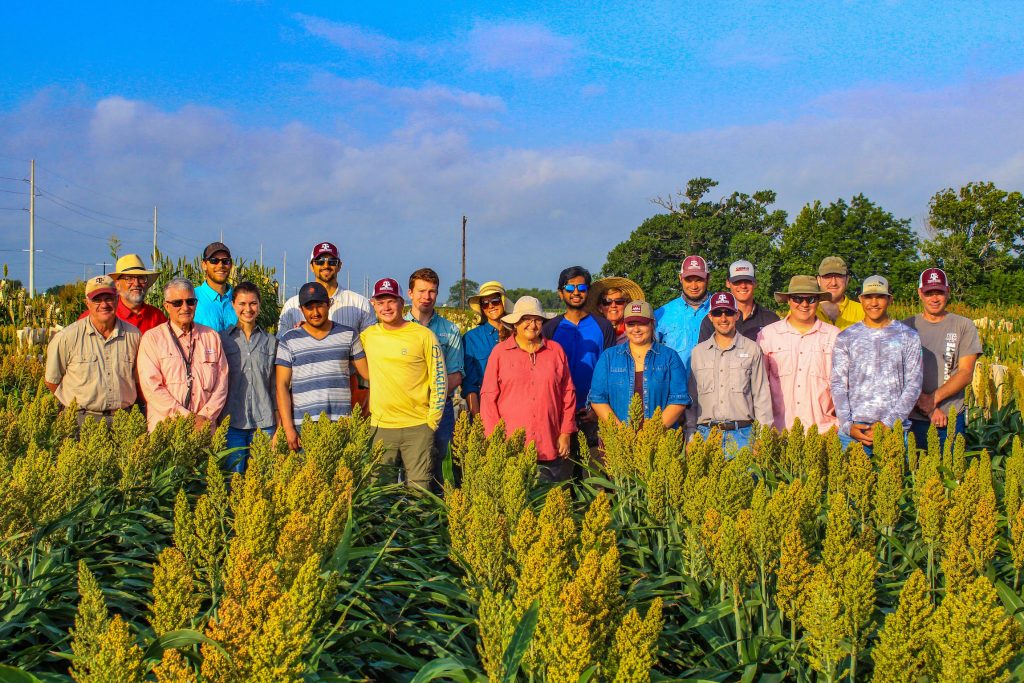Substantial genetic gains have been made in maize (Zea mays L.) through genomic selection. These technical foundations can be applied in other cereal crops to predict hybrid performance. Predicting the general and specific combining ability (GCA and SCA) in hybrid sorghum, as well as getting a better understanding of the interaction between genotype and environment, is of great interest to sorghum geneticists and breeders.
A multi-institutional team, led by scientists based in College Station, Texas, are studying the application of genomic selection techniques to predict performance in grain sorghum hybrids. Fonseca et. al., 2021 generated hybrid lines using a factorial mating design and collected data on grain yield, height, and days to anthesis in multiple locations. The researchers demonstrate that modeling the interactive effect of genotypes and the environment through a hierarchical Bayesian framework improves the prediction accuracy of grain sorghum hybrids. This technique will allow breeders to increase selection intensity, and in so doing, increase the rates of genetic gain.
Genomic selection has proven effective in increasing the rates of genetic gain in animal and plant breeding. Additionally, it has increased the efficiency of breeding programs as fewer resources are required for genotyping individuals than assessing traits in field experiments. However, the success of genomic selection requires a reference population that produces high-quality data and represents the targeted germplasm. Our study proposed the implementation of genomic selection in grain sorghum by leveraging the structure of a breeding program pipeline focused on developing hybrids; thus, we included the genomic information to model the genetic effects derived from the combining abilities of parents. We presented an opportunity for sorghum breeders to predict and deploy specific hybrid combinations to targeted environments whether some data is available for both germplasm and environment. Our study has also motivated the development of an open-source database for the sorghum breeding community to assist breeders in implementing genomic selection in their programs. – Jales Fonseca
Reference
Fonseca JMO, Klein PE, Crossa J, Pacheco A, Perez-Rodriguez P, Ramasamy P, Klein R, and Rooney WL. Assessing combining abilities, genomic data, and genotype × environment interactions to predict hybrid grain sorghum performance. Plant Genome. 14(3):e20127(2021). PMID: 34370387. DOI: 10.1002/tpg2.20127. Read more
Related Project Websites:
- Texas A&M Rooney: https://soilcrop.tamu.edu/people/rooney-william/
- Texas A&M Fonseca: https://soilcrop.tamu.edu/people/mendes-fonseca-jales/
- To contact Dr. Fonseca via LinkedIn: https://www.linkedin.com/in/jalesfonseca/
